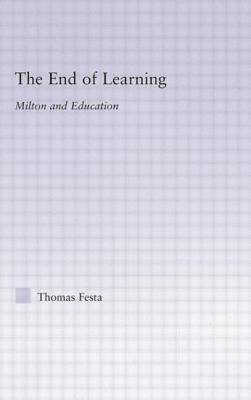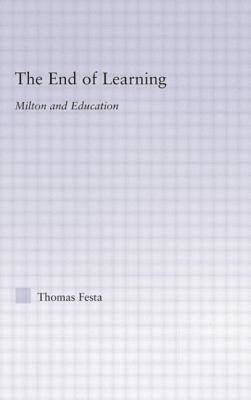
- Afhalen na 1 uur in een winkel met voorraad
- Gratis thuislevering in België vanaf € 30
- Ruim aanbod met 7 miljoen producten
- Afhalen na 1 uur in een winkel met voorraad
- Gratis thuislevering in België vanaf € 30
- Ruim aanbod met 7 miljoen producten
Zoeken
Omschrijving
This book shows that education constitutes the central metaphor of John Milton's political as well as his poetic writing. Demonstrating how Milton's theory of education emerged from his own practices as a reader and teacher, this book analyzes for the first time the relationship between Milton's own material habits as a reader and his theory of the power of books. Milton's instincts for pedagogy, and the habits of inculcation everywhere visible in his writings, take on a larger political function in his use of education as a trope for the transmission of intellectual history. The book therefore analyzes Paradise Lost in the complementary contexts of its outright educational claims and more subversive countervailing measures in order to show how Milton dramatizes "the end of learning," which is to say both its objective and its failure. The thesis emphasizes the argumentative resourcefulness of Milton's efforts to liberate readers from the tyrannical bonds of their political innocence, most immediately in the context of the failure of Cromwell's regime to establish lasting republican institutions. More philosophically, the book explores the ways in which Milton's works investigate the humane and intellectual yearning for justice in response to the problem of evil.
Specificaties
Betrokkenen
- Auteur(s):
- Uitgeverij:
Inhoud
- Aantal bladzijden:
- 192
- Taal:
- Engels
- Reeks:
Eigenschappen
- Productcode (EAN):
- 9780415762915
- Verschijningsdatum:
- 12/08/2014
- Uitvoering:
- Paperback
- Formaat:
- Trade paperback (VS)
- Afmetingen:
- 152 mm x 229 mm
- Gewicht:
- 344 g

Alleen bij Standaard Boekhandel
+ 57 punten op je klantenkaart van Standaard Boekhandel
Beoordelingen
We publiceren alleen reviews die voldoen aan de voorwaarden voor reviews. Bekijk onze voorwaarden voor reviews.











